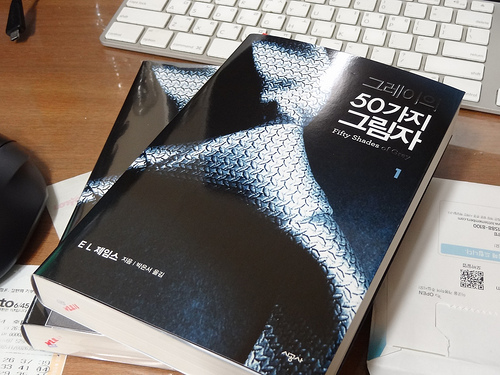An interesting new critique of 'Fifty Shades'

Let's be clear about one thing: The insanely popular book Fifty Shades of Grey is insanely popular regardless of what you or I think of it. Personally, I'm just happy to see people getting excited about a book, even if it isn't a book that is to my personal liking. (I don't care for The Unbearable Lightness of Being, either, but I'm not going to get all up in a snit about it.)
However, I found this critique to be an interesting new look at what makes 50 Shades tick, and I really think that Heather Havrilesky is on to something. She manages to put her finger right on something that has always irked me: 50 Shades (and vampire fiction as a whole) is a capitalist wet dream.
Havrilesky begins by asserting that the book belongs to "a long history of class ascendancy via feminine wiles," like Pretty Woman and The Little Mermaid. Feminists call this the "patriarchal bargain," women who choose to embrace society's misogynist ideals in order to capitalize upon them.
Havrilesky identifies the book's repetitive and unadventurous sex scenes as simply being the foreplay to the book's true core fantasy, "in which Anastasia recognizes that she's destined to abandon her ordinary, middle-class life in favor of the rarefied veal pen of the modern power elite."
That right there is what lies at the heart of the modern vampire fantasy. When was the last time you read a vampire book that featured an impoverished, working-class vampire? Would Anastasia have swooned over Christian if he was a mail room clerk who lived in a studio apartment? (Would the audience?)
Christian takes Anastasia to rapturous heights of consumer consumption, via helicopter and catamaran and luxury automobile. He woos her with brand names including Cartier, Cristal, Omega and Gucci. He lavishes her with expensive gifts, and pampers her with a seemingly endless staff of servants. The true fantasy here isn't about sex, it's about modern aristocracy.
Image courtesy Flickr/kiyong2

4 comments